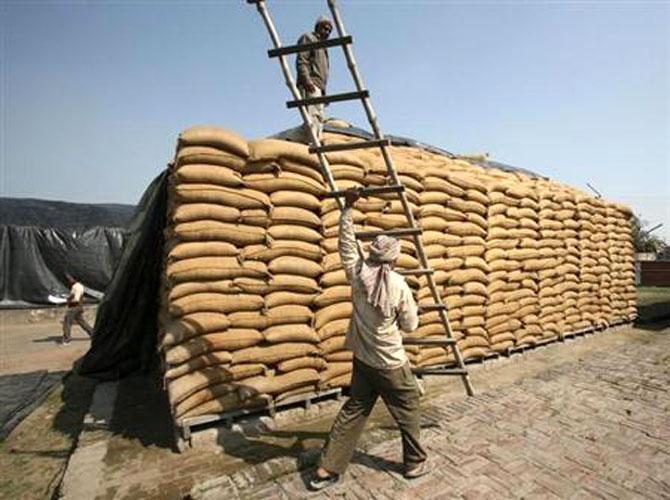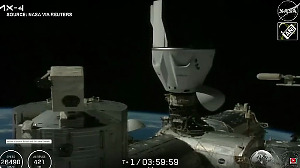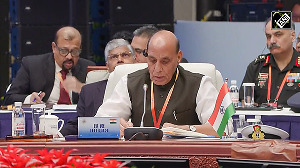 India refused to yield ground on Tuesday on its spat with the World Trade Organisation and said it believed it could convince other members that its need for more freedom on food subsidies was legitimate.
India refused to yield ground on Tuesday on its spat with the World Trade Organisation and said it believed it could convince other members that its need for more freedom on food subsidies was legitimate.
Trade Minister Nirmala Sitharaman did not give details in a statement she made in parliament, but her comments offered a robust and uncompromising defence of the Indian position, suggesting the government planned to dig its heels in on an issue that has isolated New Delhi.
Indian Prime Minister Narendra Modi's new government vetoed the adoption of a treaty to simplify, standardise and streamline the rules for shipping goods across borders, having previously agreed to its terms at a ministerial conference on the Indonesian resort island of Bali last December.
Most diplomats had expected the pact to be rubber-stamped last week, marking a unique success in the WTO's 19-year history which, according to some estimates, would add $1 trillion and 21 million jobs to the world economy. India calls these estimates highly exaggerated.
It blocked the text because it wanted more attention paid to its concerns over WTO limits on stockpiling of food which will ultimately hit its subsidised food distribution programme, the world's largest, targeted at nearly 850 million people.
"I am confident that India will be able to persuade the WTO membership to appreciate the sensitivities of India and other developing countries and see their way to take this issue forward in a positive spirit," Sitharaman said amid thumping of desks by lawmakers.
After drawing widespread condemnation as the deadline for the deal lapsed on July 31, India has said it is ready to sign the global trade deal as early as next month if other WTO members agree to its demand for concessions on food subsidies, estimated at $12 billion a year.
India fears that once it agrees to trade facilitation - largely seen to help advanced nations - it would have lost the bargaining chip on the subsidy issue.
"India is not standing in way of implementation of Trade Facilitation but seeking equal level of commitment and progress in working on the issue of public stockholding," Sitharaman said.
"A permanent solution on food security is a must for us and we cannot wait endlessly in state of uncertainty while WTO engages in an academic debate on subject of food security," she said.
FATAL BLOW
But in vetoing the first worldwide trade reform measure in nearly two decades, India may have dealt a potentially fatal blow to the WTO's hopes of modernising the rules of global commerce and remaining the central forum for multilateral trade deals.
In the short term, this is a setback for freer commerce. In the longer run, it means trade liberalisation may advance - if at all - among narrower groups of countries, denying dissenters a chance to block progress, experts say.
While the unwieldy Geneva-based WTO will survive as a body for enforcing existing multilateral agreements, smaller clubs of like-minded nations are trying to move ahead faster to update the trade rules among themselves.
"Without a serious shakeup, the WTO's future looks like that of the League of Nations," said Simon Evenett, a professor at the Swiss Institute for International Economics. "Perhaps ultimately that's what some governments want."
But Sitharaman said India remained committed to the multilateral trading system. "We continue to believe that it (WTO) is in the best interest of developing countries, especially the poorest, most marginalised ones among them and we are determined to work to the strengthen the institution."
Trade ministry officials say the breakthrough may come once the WTO agrees to revise the base year for calculating food subsidies in line with current prices which will then bring India's subsidies within WTO's limits.
India is also ready to give an assurance that the foodgrains it procures from farmers at prices that are higher than the market price will not be dumped in the global market.
Finance Minister Arun Jaitley, a key member of Modi's team who had originally opposed the Bali accord, said India would not compromise on defending the interests of its farmers.
"Isolation doesn't matter," he told NDTV in an interview on Monday night. "Sometimes you can be the only one taking the right stand."
(Additional reporting by Rajesh Kumar Singh and Aditya Kalra; Writing by Sanjeev Miglani; Editing by Raju Gopalakrishnan)






